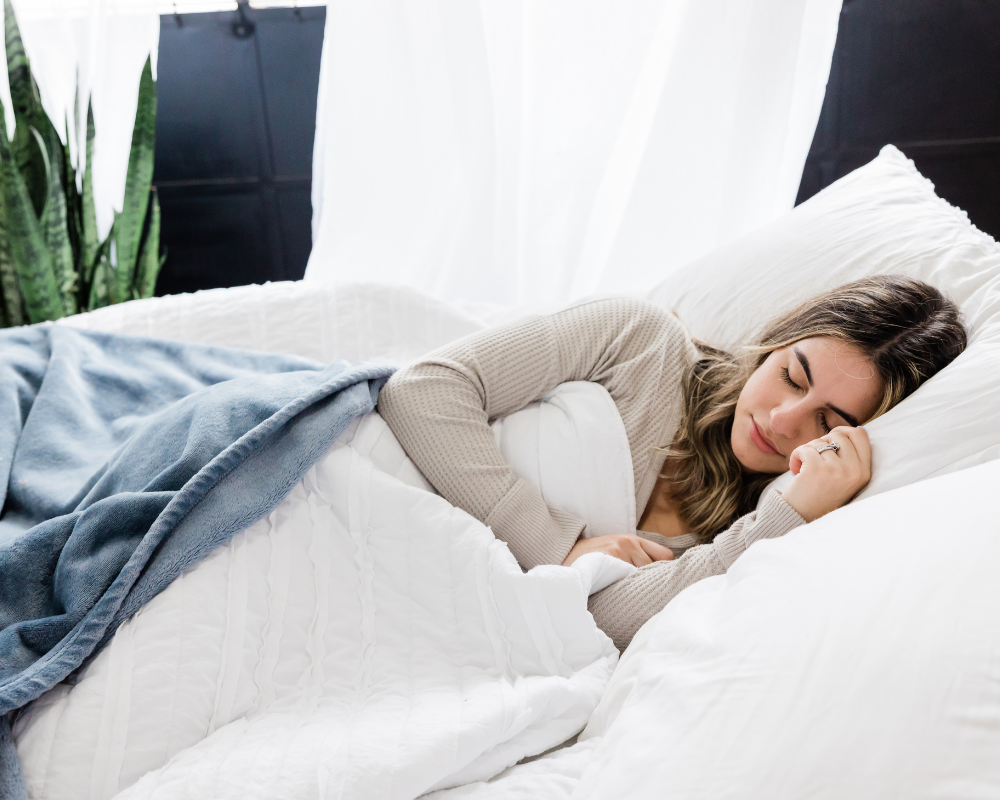In today's fast-paced world, a good night's sleep is more important than ever. Yet, many of us struggle to get the rest we need, often due to misconceptions about sleep. From old wives' tales to modern-day myths, there is no shortage of misinformation surrounding sleep. In this article, we aim to debunk some of the most common sleep myths, helping you to separate fact from fiction and achieve better rest.
1. If You Can't Sleep, Stay in Bed
While it's natural to want to stay in bed and keep trying to fall asleep when insomnia strikes, prolonged tossing and turning can lead to frustration and anxiety, making it even harder to drift off.
Experts suggest that if you find yourself unable to fall asleep after 20-30 minutes of lying awake in bed, it's often more beneficial to get up and engage in a relaxing activity in dim light before attempting to sleep again. This approach, known as "stimulus control therapy," helps to break the association between the bed and wakefulness, promoting better sleep in the long run.
2. Naps Compensate For Nighttime Sleep Deprivation
Power naps can give you a quick pick-me-up, but they're not a substitute for a full night's sleep. Unlike the deep, restorative sleep you get at night, power naps mainly involve light sleep stages and don't provide the same level of rejuvenation.
Depending on power naps to make up for lost sleep can lead to what's called "sleep debt," which can affect your mood and cognitive function over time. So, remember to prioritise getting enough quality sleep each night to keep feeling your best.
3. Watching TV Before Bed Helps You Unwind
Watching TV before bed may seem like a relaxing way to unwind, but it can actually disrupt your sleep. The blue light emitted by screens, including televisions, smartphones, and tablets, can suppress the production of melatonin, the hormone that regulates sleep. This can make it harder to fall asleep and lead to poorer sleep quality overall.
To promote better sleep hygiene, experts recommend limiting screen time before bed and engaging in relaxing activities instead, such as reading a book or practicing relaxation techniques like deep breathing or meditation. By reducing exposure to blue light and creating a calming bedtime routine, you can improve the quality of your sleep and wake up feeling more rested and refreshed.
4. Yawning Always Means You're Sleepy
Yawning isn't always straightforward. While it's often linked to feeling sleepy, it can also be a response to boredom or triggered by seeing others yawn. This phenomenon, known as contagious yawning, reflects our social nature and empathy. So, next time you catch yourself yawning, take a moment to consider what might be behind it—it could reveal more than just fatigue.
5. Bedtime Doesn't Matter, Just Get Enough Hours
Consistent bedtime isn't just about logging enough hours of sleep; it's about syncing with your body's natural rhythms. By sticking to regular sleep times, you reinforce your internal body clock, making it easier to fall asleep and wake up refreshed.
This routine not only promotes better sleep quality but also has broader health benefits, including improved mood and cognitive function, while reducing the risk of chronic conditions.
6. Everyone Needs 8 Hours Of Sleep
While some people may feel well-rested with 8 hours of sleep, others may thrive on slightly more or less. Understanding and honouring your unique sleep needs is key to achieving optimal rest and overall well-being. So, rather than fixating on a specific number of hours, focus on listening to your body and giving it the sleep it needs to feel refreshed and energised each day.
7. Snoring Is Harmless
Snoring is often considered harmless, but it can signal obstructive sleep apnea (OSA), a condition where breathing pauses during sleep. OSA is linked to health risks like high blood pressure and impaired cognitive function. If you or a loved one experiences loud snoring or daytime sleepiness, seek medical advice for diagnosis and treatment.
8. Exercise Before Bed Ruins Sleep
While exercising before bed can impact sleep quality, it's not always detrimental. To optimize rest, aim to finish exercise at least one to two hours before bedtime, allowing the body to cool down. Regular physical activity promotes better sleep overall, but timing is key for maximising its benefits on sleep quality and overall well-being.
9. You Can Catch Up On Sleep During The Weekend
Although a weekend sleep-in may offer some temporary relief, it's insufficient to fully offset the effects of chronic weekday sleep deprivation. Consistency in sleep patterns is crucial for maintaining a healthy sleep-wake cycle and promoting optimal physical and mental well-being.

